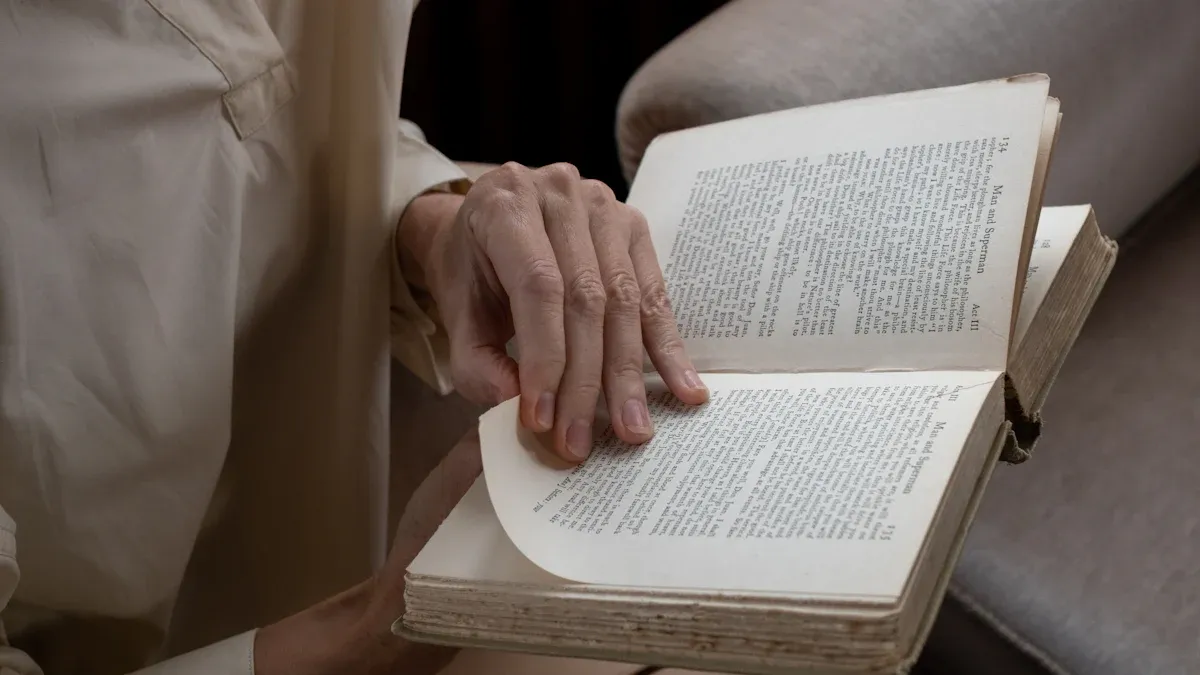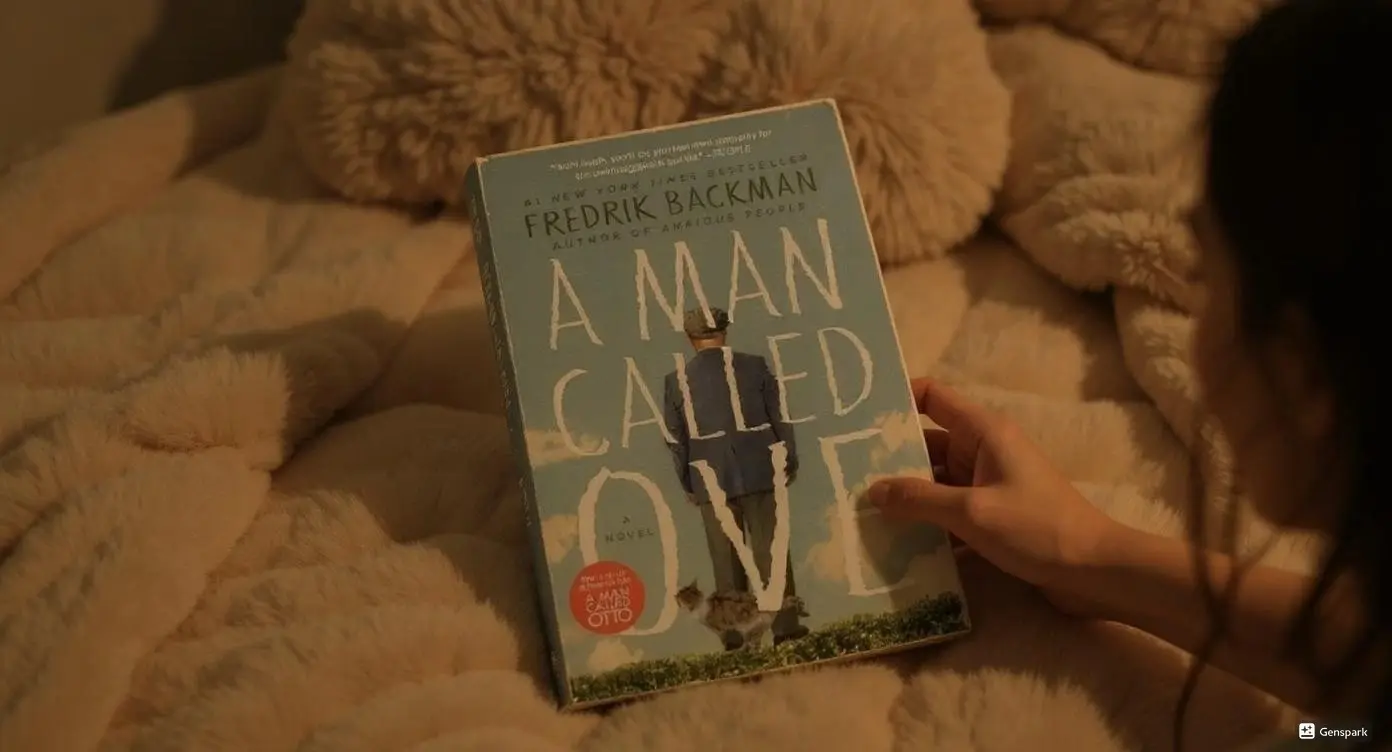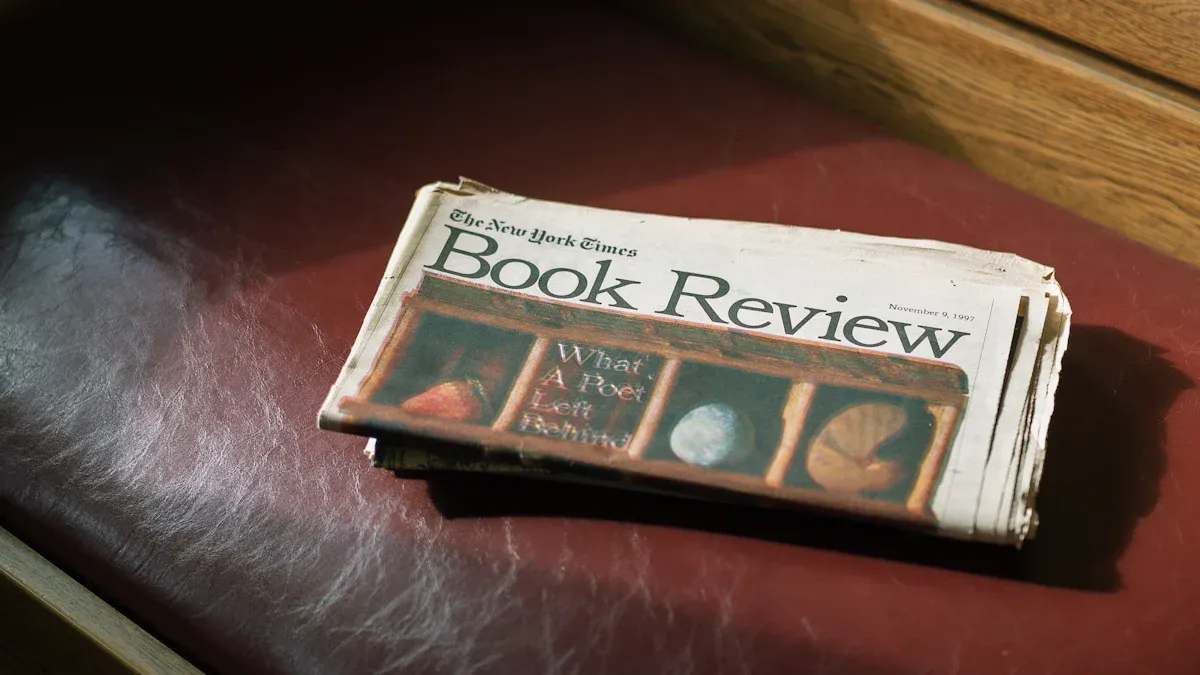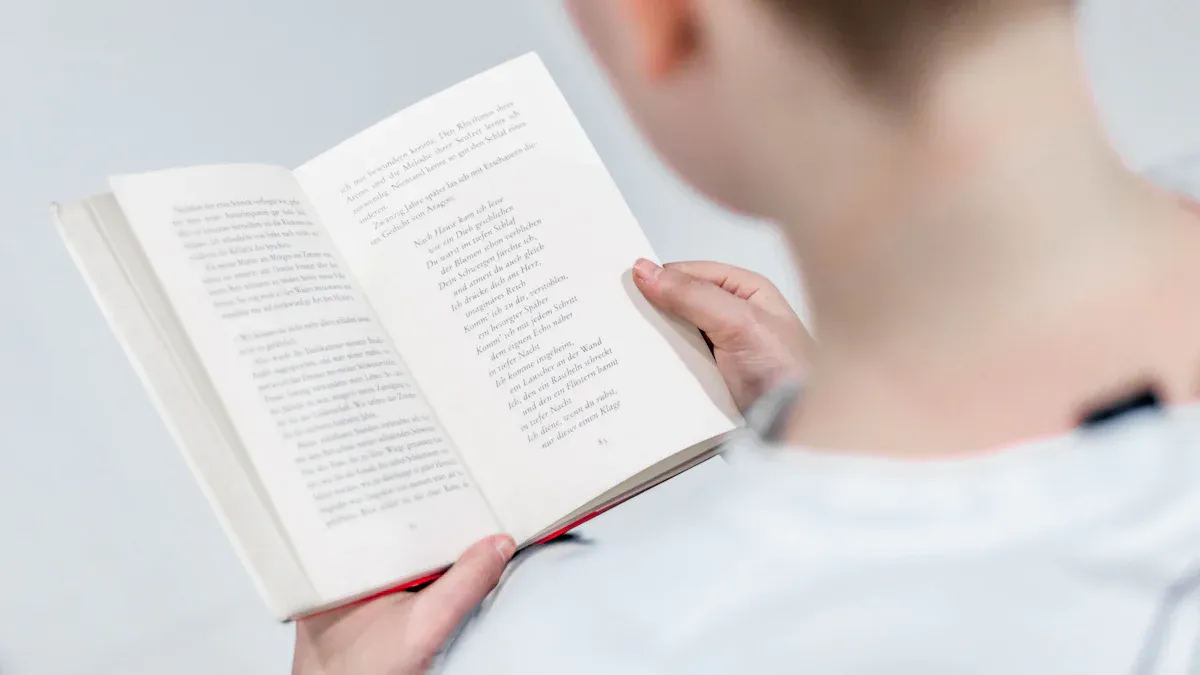Have you ever thought about which sibling your parents like most? That is what The Accidental Favorite by Fran Littlewood is about. I felt understood by how real the family drama was. If you enjoy stories about sisters who fight and parents who are hard to deal with, you should read this book.
Key Takeaways
The Accidental Favorite shows real family problems through three sisters.
Readers can understand their struggles and love. Fran Littlewood changes points of view and times to tell a true story.
The story shows how memories affect family bonds.
The book has strong feelings and themes about favoritism and sisterhood. These ideas stay with readers and make them think about their own families.
About the Author
Fran Littlewood’s Background
I always wonder about the people who write books. Fran Littlewood seems like someone you could talk to over coffee. She lives in London with her husband and three daughters. She worked as a journalist before writing novels.
She even worked at the Times. I think it is cool that she went back to school for an MA in creative writing at Royal Holloway, University of London. That shows she is brave and really loves stories.
Previous Works
Before The Accidental Favorite, Fran Littlewood wrote Amazing Grace Adams. That book was popular in book clubs. People who like family drama enjoyed it. Here’s what makes her earlier book special:
Amazing Grace Adams is about a woman facing perimenopause, a breakup with her husband, and problems with her teenage daughter.
The story looks closely at family problems and strong feelings.
Book clubs liked how real her characters seemed.
The Accidental Favorite by Fran Littlewood
Plot Overview
I have to admit, I read The Accidental Favorite by Fran Littlewood in one sitting. I started after dinner and finished way past midnight. I just had to know which sister was the favorite. The story centers on the Fisher family. One day, the sisters find out that their parents, Vivienne and Patrick, might have a favorite child. This discovery shakes up everything they thought they knew about their family.
The book opens with a simple family gathering. But then, a small comment or a look makes the sisters wonder if their parents love one of them more. That question grows and grows. It made me think about my own family. Have you ever wondered if your parents have a favorite? This book takes that feeling and turns it into a full-blown family drama.
I noticed that readers really connect with the plot overview. Some people get hooked right away, especially when the sisters start to question their parents. Others lose interest if the story slows down. I saw that the most engaging parts are when secrets come out or when the sisters argue. These moments keep readers turning the pages. I think the author knows exactly when to drop a twist or a big reveal.
The Fisher Family
The heart of The Accidental Favorite by Fran Littlewood is the Fisher family. There are three sisters: Alex, Nancy, and Eva. Each one has a different bond with their parents.
Alex is the oldest. She tries to keep everyone together. She acts like the peacemaker, but sometimes she feels left out.
Nancy is the middle child. She wants attention but feels invisible. She often wonders if she is the forgotten one.
Eva is the youngest. She seems carefree, but she carries her own worries. Sometimes, the others think she gets special treatment.
Vivienne and Patrick, the parents, are not perfect. They love their daughters, but they make mistakes. Sometimes, they say things that hurt. Other times, they try to fix things and only make them worse. I found myself getting frustrated with them, but I also felt sorry for them. Parenting is hard, and this book shows that.
The story jumps between the sisters’ points of view. One chapter might be from Alex’s side, the next from Nancy’s, and then Eva’s. The timeline also shifts. Sometimes, we see the sisters as kids. Other times, we see them as adults, looking back on old memories. This structure makes the story feel real. It shows how memories can change over time and how each person remembers things differently.
Themes

Family Dynamics
Family drama always gets me. In this book, the Fisher family feels so real that I sometimes wanted to reach into the pages and shake them. The sisters argue, laugh, and hold grudges just like people I know.
I saw how their parents tried to keep the peace but sometimes made things worse. The story shows how family roles can stick, even when everyone grows up. I noticed that the book uses shifting timelines to show how old wounds never really heal.
Favoritism
Favoritism is the heart of this story. I felt the tension every time the sisters wondered who Mom or Dad liked best. The book doesn’t just tell us about favoritism—it makes us feel it. I found myself picking sides, then changing my mind.
It can even push adult children away from their parents.
Other things like personality clashes and family trauma add to the mess.
I’ll be honest, this theme left me thinking about my own family long after I finished the last page.
Sisterhood and Memory
Sisterhood in this book is messy and beautiful. The sisters remember things differently, and those memories shape who they are. The story jumps between past and present, showing how childhood moments stick with us.
Current storytelling trends focus on deep, shared themes, not just surface details.
The book uses these trends by letting each sister’s story build on the others, creating a bigger picture.
Characters
Main Sisters
I have to admit, I got way too invested in these sisters. Each one felt like someone I might know—or maybe even like myself on a bad day. Alex, Nancy, and Eva all bring something different to the table.
Alex tries to hold the family together. She acts strong, but I could feel her loneliness. Sometimes, I wanted to give her a hug.
Nancy always seems to be searching for her place. She’s the middle child, and I could sense her frustration. She made me laugh, but she also made me sad.
Eva is the youngest and seems carefree, but I saw her worries hiding underneath. She gets called the favorite, but that label weighs on her.
The sisters argue, joke, and remember things in their own ways. I loved how the book let me see inside each of their heads. It reminded me of Anne Tyler’s novels, where every character feels real and flawed. The way Fran Littlewood shows their memories and secrets made the story feel honest. I found myself rooting for all three, even when they messed up.
Parental Roles
Vivienne and Patrick, the parents, are not just background characters. They make mistakes, say the wrong things, and sometimes try too hard to fix everything. I saw how their choices shaped the sisters.
Vivienne tries to be fair, but her words sometimes sting.
Patrick wants peace, but he avoids hard talks.
Their actions reminded me that parents are just people, too. They carry their own worries and regrets. I felt frustrated with them, but I also understood them. The book shows how family traits stick, even when everyone tries to change.
To be fair, I think the parents’ flaws made the story stronger. I saw echoes of my own family in their awkward hugs and missed chances.
Narrative Style
Perspective
I love how Fran Littlewood uses shifting perspectives in this book. Each sister gets her own chapters, and I felt like I was right inside their heads. This style made the story feel personal and real. I started to trust the sisters, even when they disagreed.
First-person chapters let me see each sister’s secrets and worries.
I noticed I cared more about their problems because I heard their voices directly.
The story felt honest, like a friend telling me what happened.
I read a study once that said stories told in first person make readers trust the narrator more. People remember the story better and feel closer to the characters. That’s exactly what happened to me here. I found myself rooting for each sister, even when they made mistakes.
Structure
The book jumps between past and present, and I actually liked that. Sometimes, I get lost when stories do this, but not here. Each chapter starts with a clear hint about the time, so I never felt confused.
The story moves from childhood memories to adult arguments.
I saw how old fights and small moments shaped the sisters.
The structure helped me understand why the family acts the way they do.
I have to give props to Littlewood for making the timeline easy to follow. The mix of memories and current drama kept me turning pages. I felt like I was piecing together a puzzle, and every chapter gave me a new clue.
Standout Qualities
Emotional Depth
I have to admit, this book hit me right in the feelings. The way Fran Littlewood writes about family pain and love feels so real. I found myself thinking about my own family late at night. The sisters’ arguments and quiet moments made me feel like I was sitting at their kitchen table. Sometimes, I even had to close the book and take a breath. The emotional depth here is not just about big fights. It’s in the small details—awkward hugs, old jokes, and the things left unsaid.
What makes this novel stand out is how it uses different ideas from psychology and literature to show family struggles. Here’s a quick look:
Aspect | Description |
|---|---|
Psychoanalytical Concepts | Looks at hidden feelings and how family shapes who we are. |
Marxist Ideology Critiques | Shows how family rules and words affect each person. |
Structural and Developmental Psychology | Connects childhood memories to how the sisters act now. |
Semiotic Method | Uses hopeful language to talk about tough family issues. |
Comparison to Other Family Dramas
I read a lot of family dramas, but this one feels different. Most books in this genre focus on big secrets or dramatic events. This story digs into the everyday moments that shape us. Reviewers say it stands out because:
It mixes deep feelings with honest humor.
The sisters’ voices feel real and unique.
The book uses shifting timelines and perspectives better than most.
Readers who love stories about messy families will find a lot to relate to.
Strengths & Weaknesses
I have to admit, I read this book with a flashlight under my blanket. I just couldn’t put it down. The story pulled me in so much that I forgot to check my phone for hours. That almost never happens. The Fisher sisters felt so real, I started thinking about my own family and old arguments I thought I’d forgotten.
What worked for me:
Authentic family drama: The fights and awkward silences felt chilling. I saw myself in the sisters’ jealousy and love.
Shifting perspectives: I loved how each chapter let me step into a different sister’s shoes. It kept the story fresh and made me care about all three.
Emotional honesty: Some scenes had me close to tears. The way Fran Littlewood writes about memory and regret hit hard.
Relatable themes: If you’ve ever wondered about favoritism in your own family, this book will get under your skin.
What didn’t work as well:
Pacing: Some chapters dragged. I found myself skimming a few pages, waiting for the next big moment.
Repetitive arguments: The sisters sometimes circled the same issues. I wanted them to move forward faster.
Predictable twists: I guessed a few secrets early on, so the reveals didn’t always shock me.
To be fair, I’d rate it a solid 7/10. If you like messy families and honest emotions, you’ll find a lot to love here.
Sip The Unknown—Discover Stories You Never Knew You’d Love!
Dionysus Reviews Has A Book For Every Mood
Biography & Memoir
Fiction
Mystery & Detective
Nonfiction
Philosophy
Psychology
Romance
Science Fiction & Fantasy
Teens & Young Adult
Thriller & Suspense
Frequently Asked Questions
Is The Accidental Favorite a good pick for book clubs?
I think so! The family drama and sibling rivalry spark great discussions. Everyone will have a favorite sister. You might even argue about the ending.
Do I need to read Fran Littlewood’s first book before this one?
Nope! You can jump right in. The stories stand alone. I started with this one and never felt lost.
Does the story have a happy ending?
I won’t spoil it, but the ending felt honest. It left me thinking about my own family for days. Not everyone gets what they want.









